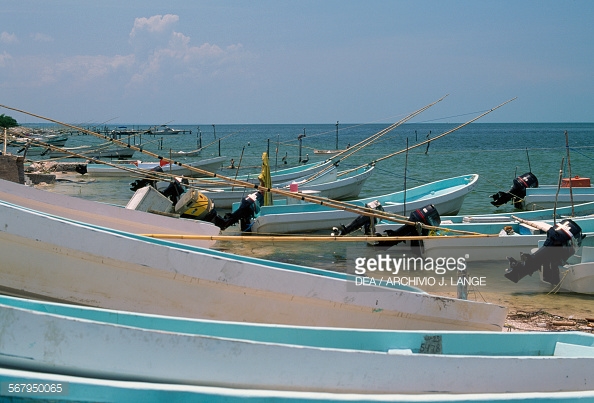A theory put forward by a Mexico City diplomat that illegal forays into U.S. waters are unintentional and merely a result of fishermen “getting lost” is absolutely untrue, US Coast Guard officers say.
Mexico’s foreign relations secretary, Marcelo Ebrard, said incidents of fishing by Mexican boats in U.S. waters were mistakes, saying it can be difficult to locate the dividing line between the two countries’ territorial waters.
“Sometimes it is hard to determine the exact line. It’s not something intentional,” Ebrard said.
But U.S. Coast Guard personnel with experience interdicting these 20- to 25-foot open boats, called Lanchas, say there is no way navigational error is responsible for the incursions.
Chief Warrant Officer Jason Cross, now based at Coast Guard Sector/Air Station Corpus Christi, is experienced in the fight against illegal fishing after serving as executive officer at Coast Guard Station South Padre Island.
So what’s the likelihood Mexican lancha crews are simply unaware of their location at sea?
“Well, considering we’re doing interdictions 60 nautical miles north of the MBL (Maritime Boundary Line), I don’t’ think there’s any likelihood at all that they don’t know where they are,” Cross said Thursday. “Plus, they have GPS’s on board.”
In previous interviews with Coast Guard and Texas Game Wardens, officers with those agencies say the crews of the Mexican lanchas fishing illegally in Texas waters are keenly aware of just where the border in the gulf is situated.
When spotted by U.S. law enforcement, the lanchas invariably flee back across the border into Mexican waters, where they cannot be pursued. Texas Game Wardens have chased back 45 lanchas in the past two years, and have seized more than 32miles of gill nets and longlines that were illegally set.
Cross said in this current fiscal year, which began in October, Coast Guard cutters have made 30 interdictions of Mexican lanchas in U.S. waters.
“Every lancha that we’ve interdicted since I’ve been down there, and then all the way to last night’s interdiction, they all have GPS’s on board, so they know where their gear is,” Cross said, referring to the illegal longlines and gill nets the lancha crews deploy.
Typically they set their nets or longlines, then return to Mexican waters for a day or two, then come back to pull up their catch. Both longlines and gill nets are indiscriminate killers, and Cross said all of the catch is boated and taken to Mexico with no regard to species or size limits.
“A lot of our interdictions happen up to anywhere from 50 to 60 nautical miles north of the MBL, that’s off the Port Mansfield area, almost all the way up to Corpus Christi,” Cross said. “Those aren’t inadvertent mistakes. They know what they’re doing.
“They’re targeting the resources and targeting the artificial reefs that Texas created off the Texas coast,” he added. “They know where the hotspot fishing spots are, and they know where the marine boundary line is. These aren’t mistakes.”
Cross said the latest interdiction occurred Wednesday when a spotter flight relayed information on two Mexican lanchas inside U.S. waters. The Coast Guard was able to catch one of the open boats, and the boat, gear, catch and GPS were seized. The boat eventually will be destroyed.
Under maritime law, fishing crew members are repatriated back into their country of origin. But Cross said there are exceptions in some cases.
“If they fail to stop for us when we get on scene with our blue lights and sirens and stuff, then we can go ahead and prosecute for possible failure to heave, and with that, the master is usually arrested and he’s put before a federal magistrate,” Cross said.
“On average they can do three to six months depending on the severity of the failure to heave, and that’s just for fishing,” he added. “If its drugs, obviously there are stiffer penalties. Usually a couple years; it all depends on the federal magistrate once they prosecute the case.”
Beginning Monday, Mexican fishing boats in the gulf were “prohibited from entering U.S. ports (and) will be denied port access and services,” the National Oceanic and Atmospheric Administration wrote. The ruling was made in January and went into effect this month.
The port ban is the result of decades of almost daily incursions by Mexican fishing boats illegally netting in U.S. waters, but the move will not affect the lanchas, which never touch on U.S. soil, always keeping out to sea.
Mexico’s Agriculture and Fisheries departments said Monday they are holding informational chats with fishermen on Mexico’s northern gulf coast near the border to focus attention on illegal fishing in U.S. waters.
But little headway is expected in reducing illegal fishing in U.S. waters by Mexican crews.
“It’s been going on, as far as I know when I was down in SPI, we had history all the way back to the ’70s,” Cross said. “Honestly, I don’t know what Mexico is doing to sustain the fishery off their coast so they can have their own fishery, maintain their own fishery.
“Unfortunately, the U.S. does an excellent job, and the state of Texas, in maintaining the fishery off the Texas coast,” he added. “So it’s lucrative fishing.”



